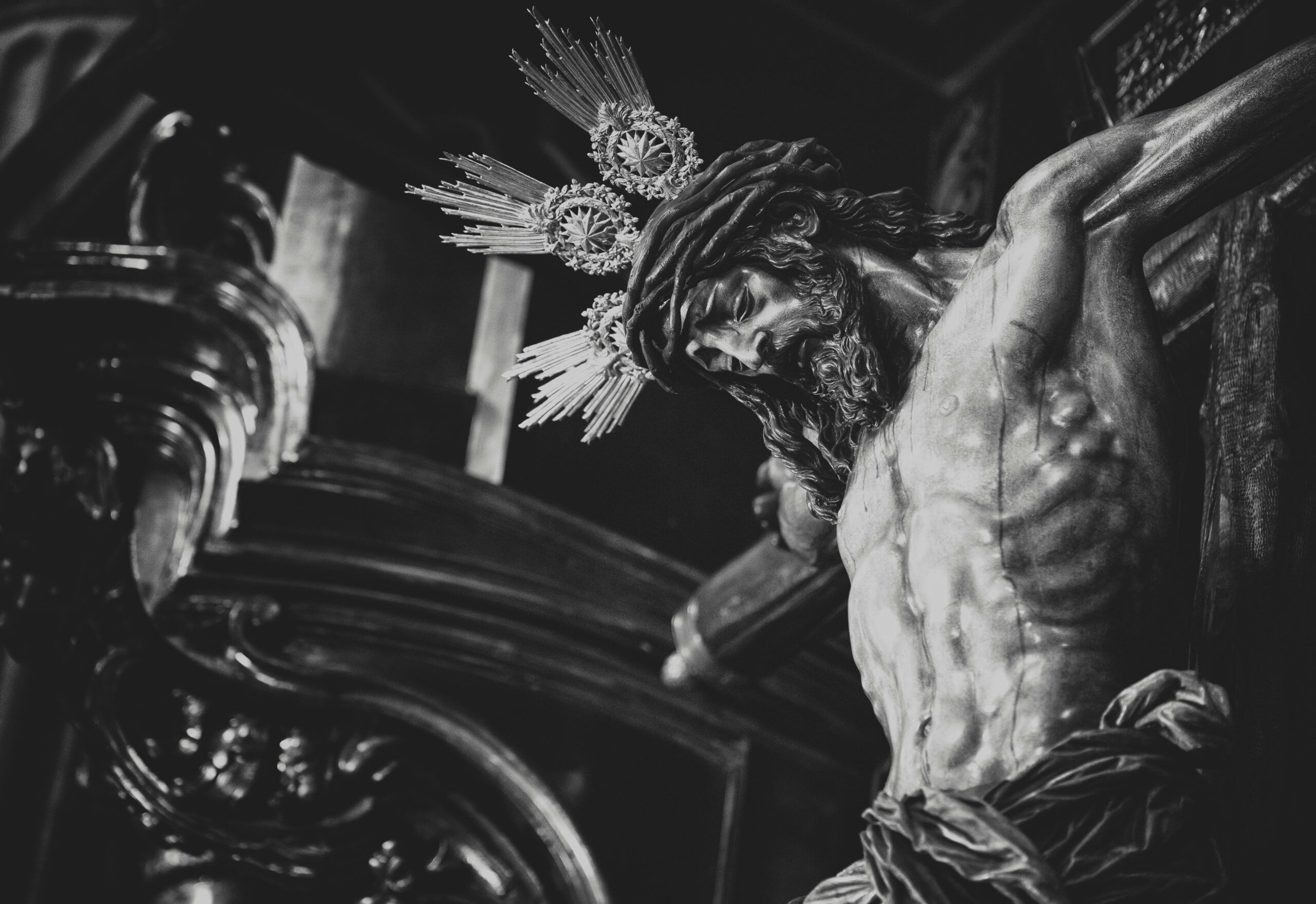It’s easy to distinguish between things we can see and touch, but when it comes to Jesus and God, it’s not simple. That’s because several scriptures refer to Jesus as God, and he did things that would make any Christian remark, “Only God can do that!” Nonetheless, when we read the Bible, we often see God and Jesus as the same person, yet they are also different. So, what is the difference between God and Jesus?
The Bible tells us there is God our Father and Jesus the Son of God, also called the Son of man. We pray to God, not Jesus, but we can ask Jesus to intercede because he is our mediator. Finally, Jesus was fully God and fully human, but God never had human limitations.
Differences Between God And Jesus?
Jesus Has the Authority of the Son
On several occasions, Jesus called God his father. This points to a father-son relationship, but not in the sense of a progenitor. God is known as the Father because He is our creator, provider, and deliverer. Jesus explained the crucial role of God when he said that the way to the Father is through Him (Matthew 11:27, John 14:1-7).
When Christ was baptized, the Holy Spirit descended on God the Son, and God the Father proclaimed His pleasure in the Son. Later, during his ministry, Jesus asks the Father to send the Holy Spirit to be our helper (John 14:16-17).
This scripture shows that Jesus did not consider Himself to be the Father or the Holy Spirit. It also points to the distinction between God and Jesus and illustrates that YHWH has the ultimate power. Being fully human and fully divine indicates Christ has two natures in one person. And because he is fully divine, he has demonstrated the characteristics of the Father so that we can understand God’s ways (John 8:19).
Jesus Is the Long-Awaited Messiah
In the Old Testament, we see prophecies about the coming Messiah, who will come as a suffering servant and will be led as a lamb to the slaughter (Isaiah 7:14; 9:6-7; 53). The Messianic prophecy also tells us that Jesus will be from the Davidic lineage based on God’s promise to King David.
On the other hand, the New Testament speaks of believers who have already died and will be raised to life in Christ who will descend from heaven with a shout, with the voice of an archangel, and with the trumpet of God (1 Thessalonians 4:14-17).
So, God our Father sent His begotten son (the Messiah/Emmanuel) as a remedy for our sins. In this context, God is the sender and Jesus is the fulfillment of Messianic prophecies.
Jesus Is the Mediator
A mediator means more than someone between God and man. Jesus is our mediator, meaning through him, we have a relationship with God. The Bible says there is only one God, and the mediator between man and the LORD is Jesus Christ (1 Timothy 2:5). It’s because of our mediator that we can receive internal inheritance and stand before God (Hebrews 9:15).
God is perfect and holy. Because of our sinful nature, we cannot approach Him and that’s why we need a mediator who can live in both the physical and spiritual realm to act as a bridge.
The Father and the Son of Man
Jesus is called the Son of man (Matthew 12:32; 13:37; Luke 12:8; John 1:51). In the Bible, God is never referred to as the Son of man. This title is primarily used to describe Jesus Christ to emphasize his role as the Messiah. In contrast to the Son of God, which focuses on His deity, the Son of Man points to the humanity aspect of Christ.
The Son of man in the Bible comes about because he was conceived through the Virgin Mary and brought up by earthly parents, including his Father, Joseph. Jesus, as the Son of man, had human characteristics. He wept, felt pain, and prayed to God. But as the Son of man, Jesus is also a perfect example of all that God intended mankind to be.
He was also able to forgive sins because all the fullness of the deity lives in his bodily form (Colossians 2:9; Matthew 9:6). After he ascended to heaven, the Son of Man went on to sit at the right hand of the Mighty One and will come on the clouds of heaven during end times (Matthew 26:64). Overall, God represents the divine being while Jesus as the son of man emphasizes his humanity.
We Pray Only To God
Jesus said the longest prayer in John 17. There, he prays to God the Father. Often, we also direct our prayers to God. An example of where we see Jesus praying is when he went to Gethsemane and told his disciples, “Sit here while I pray. “He took Peter, James, and John along with him, and he began to be deeply distressed (Mark 14:32-35)
God calls people to worship and pray only to Him, and Jesus understood this fully. That’s why when Jesus was teaching people how to pray, he said Our Father, who is in heaven, as a way to acknowledge God (Matthew 6:9). When we pray, we direct our thoughts toward our LORD. We can also pray through the name of Jesus Christ because he is our mediator to God the Father.
Jesus Was Fully Human
God cannot die. But humans can die, and Jesus’s human nature did die, but his divine nature did not. It’s because he was human that he was able to feel pain and suffering. On the other hand, God doesn’t feel human emotions and lacks nothing.
Jesus exhibiting human characteristics is also seen when he went to Bethany and became hungry. As a result, he went to a fig tree to look for fruits, only to find nothing because the fruits were not in season. (Mark 11:11-14). Jesus became angry and prayed that the tree would not bear fruit.
The Kingdom of God
Jesus was sent to proclaim the good news of the kingdom of God (Luke 4:43-44; John 17:3). That’s why when he said: “My teaching is not my own. It comes from the one who sent me” (John 7:16) the words that Jesus was speaking were not his own but from God. He was like a vessel through which God could speak to his people.
God has established his throne in heaven, and His kingdom rules over all (Psalm 103:19. However, the kingdom of God must be entered through Christ Jesus. The Son of God even preached that repentance is necessary to be a part of the kingdom (Matthew 4:17). Overall, God has set up an eternal kingdom that will never be destroyed, and Jesus’ purpose on earth was to preach the good news of the kingdom of God (Luke 4:43).
Book Of Revelation
John’s record of the end times also points to the difference between God and Jesus. The distinctness is seen when God, sitting on the throne, holds a scroll and asks who is worthy to open it. It turns out it is the Lion of Judah, but when John looks instead of the lion, he sees the lamb that was slain. Revelation also talks about Jesus as the judge.
The angels and elders surround the throne, singing, “To the One who sits on the throne and to the Lamb belongs praise, honor, glory, and power forever and ever” (5:13). This clearly refers to God and Jesus, who was the lamb that was slain on the cross.
Ultimately, Jesus will return to earth to reign in glory during the Millennium and judge humanity. The Bible says, “The Father judges no one but has entrusted all judgment to the Son” (John 5:22). So the role of Jesus is as a son of God, redeemer and judge of mankind.
Conclusion
God is the creator of everything living both on earth and in heaven. He is our provider who lacks nothing, and his existence is timeless. On the other hand, Jesus is our high priest and God’s Son. When Christ came to earth, he became God in human flesh and died for our sins so that we could have eternal life. He sits at the Father’s right hand and will eventually come to judge mankind. Finally, several scriptures show us that God the Father and God the Son are not the same person, and the Baptism of Jesus and praying to the Father are proof of that.




